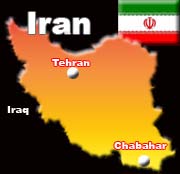Nuclear dispute settlement is feasible, says Iranian Speaker
 Tehran - A settlement of the Iranian nuclear dispute would be feasible if the issue were tackled "correctly" and the United States clarified its new position, Iran's parliament Speaker Ali Larijani said Monday.
Tehran - A settlement of the Iranian nuclear dispute would be feasible if the issue were tackled "correctly" and the United States clarified its new position, Iran's parliament Speaker Ali Larijani said Monday.
"Instead of coming up with preconditions, they (world powers) should resume the talks and clearly articulate their concerns so that we can find was to settle them," he told reporters in Tehran.
"If the concern is that we are moving towards nuclear weapons, then the international supervision could be made in a way to remove this concern," said Larijani, who served from 2005 to 2007 as chief nuclear negotiator.
"But if the demand is aimed at depriving Iran of nuclear technology, then this demand would neither be legal nor acceptable for the Iranian nation," Larijani said.
For the last six years, the so-called 5+1 - the five permanent members of the United Nations Security Council plus Germany - have been dealing with Iran over the nuclear dispute, either directly or European Union foreign policy chief Javier Solana.
The US has so far only attended the talks with the Iranian side once, but US President Barack Obama has said that Washington is ready to attend the talks in the future.
"Some elements within the 5+1 tried to sabotage progress of the talks, but now we are in a different situation," Larijani said of the previous and current US administrations.
Larijani however said that the changes proclaimed by Obama should be within a clear framework "and not through artificial rhetoric via the media."
He was referring to an interview last Monday with a an Arabic TV network in which Obama said that "if countries like Iran are willing to unclench their fist, they will find an extended hand from us."
Larijani added: "There is no need to invite us to the negotiation table, actually those who ran away from talks in the recent years should now return to the table."
While the UN Security Council has been calling on Iran to suspend its uranium enrichment process, Iran says its nuclear programme is solely for civil and peaceful purposes and in line with the Nuclear Non-Proliferation Treaty and regulations of the International Atomic Energy Agency (IAEA).
Despite three UN resolutions and financial sanctions, Iran has so far refused to give in to any suspension, but says it is willing to cooperate with the West, even the US, in its nuclear projects, including the disputed enrichment process.
IAEA head Mohamed ElBaradei said last Friday that opening a "direct dialogue" by the US with Iran could lead to a "freeze for freeze" compromise - Iran stopping expansion of uranium enrichment and the 5+1 expansion of UN sanctions - adding that the West should engage rather than isolate Iran. (dpa)